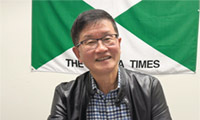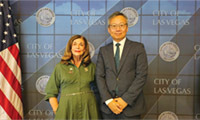The city, it seems, has not a care in the world.
Just back from the water there is a small memorial to Rosa Luxemburg, the socialist revolutionary murdered in 1919 by rightist paramilitaries. Her body was tossed in the canal. The murder presaged two decades in which Germany would be the crucible of a fierce struggle between left and right, Marxism and Fascism.
Across Europe, opposing ideas vied for the minds of the masses tugged into cities by industrialization, radicalized by the devastation of war, polarized by the Bolshevik revolution in Moscow. Politics was the battleground of capital and labor, industry and the proletariat. Rightist revanchists confronted Marxists bent on wresting control of the means of production. The Weimar Republic, aptly described by the novelist Alfred Doblin as a political set-up lacking “proper instructions for use,” was never free of political violence. Out of it, in 1933, came Hitler and his marauding SA Brownshirts. It did not take them long to trash every independent institution and turn Germany into a lawless dictatorship.
The Nazis’ first business was with the left — socialists and communists who, unlike Luxemburg, had survived. The first concentration camps, like Dachau, were filled with them. The battle of ideas had to be settled, the left extinguished. The Jewish question could be resolved later, even if Jewish leftists (or “Judeo-Bolsheviks” as the Nazis called them) were immediately the object of particular vitriol and violence, the fodder on which the SS prepared for the greater savagery to come.
All this was not so many decades ago. Yet sometimes you have to pinch yourself to be reminded that politics was the business of the 20th century and Berlin the epicenter of an ideological struggle that involved two world wars and the prolonged division of Europe. What, you may ask, is Rosa Luxemburg to Sunday lovers? And what does politics amount to today?Most Westerners today are no longer driven by politics. By that I mean that they are no longer possessed by political ideas that they feel can change society. There is no great clash of ideologies. Politics in the 21st century has largely lost its capacity to inspire, or if there is a gust of inspiration (as with early Barack Obama) it proves illusory.
People are focused on other matters: personal health, spiritual health, wellness, diet, living longer, and the vast related matter of the health of the planet. Zen, yoga and the soul have trumped the means of production. Of course, wellness in turn raises the issues of climate change and energy consumption, questions that have considerable political content but are not political at their core. The political century has given way to the personal century.
That is one reason why the 20th century already seems so distant, why the Berlin of then and the Berlin of now appear almost unrelated and stumbling on a memorial in the Tiergarten so strange. The last century’s great battles no longer resonate. They bear little relation to people’s harried lives. They are almost quaint.
Technology has built links everywhere, binding humanity as never before, but it has also fragmented people into the solipsistic, magnetic world of their hand-held devices. These devices can be political tools that gather protest movements from Rio to Istanbul, but the movements tend to prove weak because leaderless. The devices are also numbing, isolating and depoliticizing in their idolization of self.
There are, of course, political stirrings in Europe. The political center, and the area just to the left and just to the right of it, seem dead, one reason for the rise of leftist parties like Syriza in Greece, rightist parties like the National Front in France, anti-immigrant nationalists from Sweden to the Netherlands, and big protest movements against the political establishment (of any stripe) like Podemos in Spain. At the heart of all this, it seems, is a sense that something fundamental is amiss in the economies of Western societies.
I said the personal has trumped politics in the 21st century. But of course the link between personal wellness and planetary health is not just about climate change or clean energy. It is also about how the planet’s limited resources are divided up. That division is heavily, and increasingly, skewed toward the very rich. When too much is concentrated in too few hands, a reaction begins. The success of Podemos, or in a small way of the left-wing message of Bernie Sanders in Iowa, is a reflection of this.
Politics is not dead, but it’s dormant, and Berlin remains a useful reminder of how virulent political ideology can be in a climate of social unrest.
스마터리빙
more [ 건강]
[ 건강]이제 혈관 건강도 챙기자!
[현대해운]우리 눈에 보이지 않기 때문에 혈관 건강을 챙기는 것은 결코 쉽지 않은데요. 여러분은 혈관 건강을 유지하기 위해 어떤 노력을 하시나요?
 [ 건강]
[ 건강]내 몸이 건강해지는 과일궁합
 [ 라이프]
[ 라이프]벌레야 물럿거라! 천연 해충제 만들기
 [ 건강]
[ 건강]혈압 낮추는데 좋은 식품
[현대해운]혈관 건강은 주로 노화가 진행되면서 지켜야 할 문제라고 인식되어 왔습니다. 최근 생활 패턴과 식생활의 변화로 혈관의 노화 진행이 빨라지고
사람·사람들
more
[인터뷰] 멕시코 오지에 세운 ‘희망 진료소’… “관심과 행동이 등불”
멕시코 바하 캘리포니아의 작은 마을 ‘푼타 코로넷(Punta Colonet)’. LA에서 차로 7~8시간 정도 달려야 닿는 이곳에 한인 내과의…

김영완 총영사 LV 방문
김영완 LA 총영사는 지난 11일부터 13일까지 라스베가스(LV)를 방문, 시장 및 주지사실 산하 경제개발청, UNLV 호텔경영대학 등과 잇따…
어흥축제 국악경연대회 해외 참가자 특별 무대
2025 어흥축제가 우천으로 오는 12월12일로 연기된 가운데 이번 축제의 일환으로 예정됐던 미주 국악경연대회의 해외 참가팀 특별무대 행사가 …
[올림픽 골프] 3개 남가주 매장에서 ‘원스톱 골…
올림픽 골프가 추수감사절을 맞아 대규모 골프 용품 세일을 진행한다. 이번 세일은 골프 클럽, 골프백, 의류, 액세서리 등 다양한 골프 관련 제…
[한스전자] 인기 가전제품 최대 2,000달러 할…
한스전자가 연말을 맞아 삼성, LG, 딤채, 프리지데어 등 인기 가전제품을 대상으로 최대 2,000달러 대규모 할인 행사를 진행한다. 이번 행…
많이 본 기사
- 2,000달러 관세 배당금… 내년에 … 1
- “화장실에서 꼭 확인해라”… ‘이런 모양’ 변 계속 나온다면 대장암일 수도
- 관광비자 수수료 인상 185달러서 4… 1
- 하원, ‘엡스타인 파일 공개 법안’ … 1
- 한인 대형교회 전도사 113만불 횡령… 9
- ‘노재팬’ 나선 中 여행객들, 대신 우르르 한국행
- 한덕수 재판 ‘증인 출석’ 거부한 尹…구인영장 집행할까
- 램버트 前 부차관보 “내년 中서 北美회담하려면 러 협조 필요”
- 조현병 나아졌다고 방치하면?… 5년 내 80% 재발 가능성 높아
- “어, 우리 아기 아닌데?” 산후조리원서 신생아 바뀌어 산모 분통
- 아내 ‘냉동인간’ 만들더니 돌연 “혼자살기 적적해”…새 여친 맞은 남편 中서 논란
- 월풀, 삼성·LG 국제무역위에 제소… “전자레인지 특허 침해”
- 韓-UAE, ‘100년 동행’ 공동선언… ‘바라카모델’ 원전협력 확대
- 사우디 빈살만 “1조달러 투자”…7년… 1
- ‘선거구 전쟁’ 공화 조정안, 지방법… 1
- 메타, 인스타·왓츠앱 인수 문제삼은 美정부 반독점 소송 승소
- 한인타운 ‘우후죽순’ 노점상들 버몬트… 2
- 바이브코딩 넘어 바이브워킹…MS, 모든 업무 통합 에이전트 공개
- 한인 버스기사 살해범, 중범 불체자였… 1
- 뉴욕증시, 엔비디아 실적 ‘D-1’ 기술주 또 팔자…동반 하락
- ‘마라도나 사망 재판’ 판사 해임… “몰래 다큐 촬영 가담”
- 中, ‘日총리 발언 철회’ 요구에 日 거부… ‘주머니 손 中’ 영상도
- MS·엔비디아, 앤트로픽과 전략적 파트너십…오픈AI 의존 줄인다
- ‘엡스타인 논란’에 입장 돌변 트럼프 “문건 전부 공개하자”
- 트럼프, ‘7년만의 방미’ 사우디 빈살만에 오·만찬 ‘국빈급예우’
- 정용진, 빈살만 사우디 왕세자 美방문 환영행사 참석
- 트럼프 “엡스타인은 민주당 문제…파일공개법 통과시 서명할것”
- “첨단기술 노린 중국, 미국에 지난 … 1
- 우편요금 또 오른다 내년초 최고 7.… 1
- 최현우, ‘13억’ 로또 1등 예언 적중에 고소당할 뻔..”당첨금 수령은 노코멘트”[돌싱포맨]
- 론스타와 ‘13년 국제소송전’ 마침표… ‘배상금 0원’ 완승
- “트럼프, 지난달 한미정상회담때 핵잠… 2
- ‘곁의 힘: 공감하고 지지하는 곁이 되기’ 포럼
- 형제교회 ‘횡령 사역자’는 성환철 전도사...공동의회 통해 성 전도사 횡령금액과 방법 등 밝혀
- 도요타, 미국 내 하이브리드車 생산 확대… “9억 달러 규모 투자”
- “연말 항공여행 숨통 튀었다”… 항공편 감축 해제
- H 마트, 2026년 탁상용 달력 무료 증정
- KAGRO<중가주한미식품상협회> ‘제31회 장학금 수여식’
- 구글 피차이 “AI 버블 터지면 면역있을 회사 없어”
- 오늘도 해결사! 이강인 환상 크로스→이태석 A매치 데뷔골 쾅! 한국, 가나에 1-0 신승 ‘포트2 보인다’
- ‘한채영 닮은꼴’ 28기 영숙 “반복되는 오해” 성형 시술 입 열었다
- 대한은 다시 살아나는가 1
- 사자와 생쥐, 그리고 인간 이야기
- 셧다운 기간인 10월 중순에도 실업지표 안정적
- 사우디 빈살만 “1조달러 투자”…7년만의 방미환대 트럼프에 선물
- 대형유통점 홈디포 연간 실적전망 하향… “소비 경고음”
- 갑상선암, 운동과 상관없다더니…10년만에 결과 뒤집혀
- LA 총영사관 사칭 보이스피싱 “하루 최고 20건”
- 버핏, 애플 팔고 구글 대규모 ‘베팅’
- 애쉬번서 충전중인 배터리서 불…120만불 피해
1/5지식톡

-
 테슬라 자동차 시트커버 장착
0
테슬라 자동차 시트커버 장착
0테슬라 시트커버, 사놓고 아직 못 씌우셨죠?장착이 생각보다 쉽지 않습니다.20년 경력 전문가에게 맡기세요 — 깔끔하고 딱 맞게 장착해드립니다!장착비용:앞좌석: $40뒷좌석: $60앞·뒷좌석 …
-
 식당용 부탄가스
0
식당용 부탄가스
0식당용 부탄가스 홀세일 합니다 로스앤젤레스 다운타운 픽업 가능 안녕 하세요?강아지 & 고양이 모든 애완동물 / 반려동물 식품 & 모든 애완동물/반려동물 관련 제품들 전문적으로 홀세일/취급하는 회사 입니다 100% …
-
 ACSL 국제 컴퓨터 과학 대회, …
0
ACSL 국제 컴퓨터 과학 대회, …
0웹사이트 : www.eduspot.co.kr 카카오톡 상담하기 : https://pf.kakao.com/_BEQWxb블로그 : https://blog.naver.com/eduspotmain안녕하세요, 에듀스팟입니다…
-
 바디프렌드 안마의자 창고 리퍼브 세…
0
바디프렌드 안마의자 창고 리퍼브 세…
0거의 새제품급 리퍼브 안마의자 대방출 한다고 합니다!8월 23일(토)…24일(일) 단 이틀!특가 판매가Famille: $500 ~ $1,000Falcon: $1,500 ~ $2,500픽업 & 배송직접 픽업 가능LA…
-
 바디프렌드 안마의자 창고 리퍼브 세…
0
바디프렌드 안마의자 창고 리퍼브 세…
0거의 새제품급 리퍼브 안마의자 대방출 한다고 합니다!8월 23일(토)…24일(일) 단 이틀!특가 판매가Famille: $500 ~ $1,000Falcon: $1,500 ~ $2,500픽업 & 배송직접 픽업 가능LA…
케이타운 1번가
오피니언
 노세희 부국장대우·사회부장
노세희 부국장대우·사회부장 대한은 다시 살아나는가
 민경훈 논설위원
민경훈 논설위원사자와 생쥐, 그리고 인간 이야기
 한형석 사회부 부장대우
한형석 사회부 부장대우 한인타운 교통 인프라 개선 기대
 박영실 시인·수필가
박영실 시인·수필가 [화요칼럼] 말의 위력
 양홍주 / 한국일보 논설위원
양홍주 / 한국일보 논설위원 [지평선] 외국어 공부와 장수
 이상국
이상국 ‘도반(道伴)’
 옥세철 논설위원
옥세철 논설위원러시아제국 부활의 꿈은 멀어져만 가고…

폭발 직전의 상황인가?
 메건 매카들 워싱턴포스트 칼럼니스트 / CNN ‘GPS’ 호스트
메건 매카들 워싱턴포스트 칼럼니스트 / CNN ‘GPS’ 호스트 [메건 매카들 칼럼] 지나간 시대의 낙관주의
1/3지사별 뉴스

‘네이버 플러스’호스피스 자원봉사자 31명 배출
뉴저지 팰리세이즈팍에 위치한 비영리단체‘네이버 플러스’(Neighbor Plus·이사장 양춘길 목사)가 말기암 환자와 그 가족들을 돌보는 제4…
회장선거(뉴저지한인회) 놓고 내분사태 ‘악화일로’

“워싱턴교협 50년, 다음세대에 방향 제시하는 좌표”
“구슬이 서 말이라도 꿰어야 보배라는 말이 있다. 구슬을 꿰어 보배를 만들어 낸 편찬위원회에 감사하고, 지난 50년간 그 구슬을 만들어낸 여러…
장학생 20명 선정…장학금 총 3만불

사우디 빈살만 “1조달러 투자”…7년만의 방미환대 트럼프에 선물
사우디아라비아가 18일 대미 투자액을 기존에 발표했던 6천억 달러(약 876조원)에서 1조 달러(약 1천460조원) 규모로 상향 조정하기로 했…
방한후 美입국했다 석연찮게 구금된 한인과학자, 4개월만에 석방

오늘 하루 이 창 열지 않음 닫기 

















































.png)


댓글 안에 당신의 성숙함도 담아 주세요.
'오늘의 한마디'는 기사에 대하여 자신의 생각을 말하고 남의 생각을 들으며 서로 다양한 의견을 나누는 공간입니다. 그러나 간혹 불건전한 내용을 올리시는 분들이 계셔서 건전한 인터넷문화 정착을 위해 아래와 같은 운영원칙을 적용합니다.
자체 모니터링을 통해 아래에 해당하는 내용이 포함된 댓글이 발견되면 예고없이 삭제 조치를 하겠습니다.
불건전한 댓글을 올리거나, 이름에 비속어 및 상대방의 불쾌감을 주는 단어를 사용, 유명인 또는 특정 일반인을 사칭하는 경우 이용에 대한 차단 제재를 받을 수 있습니다. 차단될 경우, 일주일간 댓글을 달수 없게 됩니다.
명예훼손, 개인정보 유출, 욕설 등 법률에 위반되는 댓글은 관계 법령에 의거 민형사상 처벌을 받을 수 있으니 이용에 주의를 부탁드립니다.
Close
x